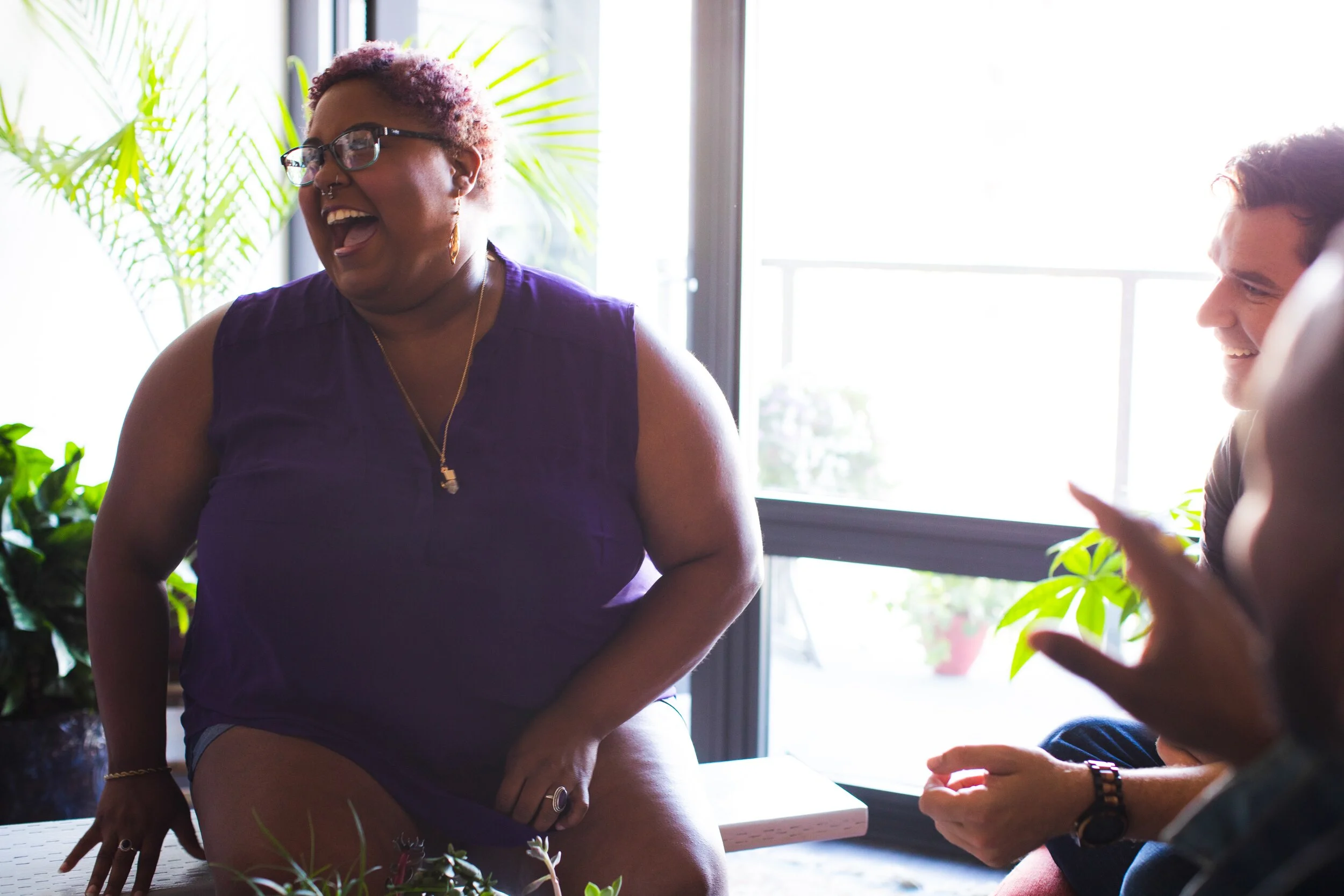
Ashrei Prayer Circles
The Origin Story
In early March of 2020, I was terrified.
A global pandemic was coming to bear on my country, my hours at work were being severely cut and I was trying desperately to apply for unemployment, we were being told to shelter-in-place yet my immunocompromised partner was being told that he still had to work. I was afraid that my partner might get sick and die, I was afraid that money would be scarce, I was afraid that I couldn’t access the supplies I needed to stay safe. I was holding so much fear.
Growing up as a Mormon, I had a really close and personal relationship with g!d. It was as a Mormon that I learned to pray. I was taught to speak to g!d with reverence, share the words that came to me spontaneously. Since the time I was young, I said prayers on my own, led family prayers and led prayers for groups at church. I came to g!d in times like these when I was scared and felt deeply alone. When my dad was deployed to far away places to fight wars I couldn’t understand and I worried for his life, I prayed. Back then I knew I could talk to g!d and seek comfort and receive it like the many times I had before. G!d has been a refuge, a blanket of comfort and hope, when all else felt grim and unmanageable.
Now years after becoming a Jew and in the midst of this pandemic with these worries swirling, I knew g!d was still there. But reaching out to talk alone in my room just amplified my loneliness. Praying as a Jew was different. As a Jew I’ve learned to pray the words in my siddur in groups holding the yearnings in my heart and trying to imbue the words on the page with those feelings. These words provide comfort and coming back to them has given me a soothing rhythm and points me toward gratitudes I may have missed.
I have had powerful experiences in these prayer services. I remember crying during prayers for healing as I held on to hope for a loved one that was ill. I remember pouring all of my yearnings for decarceration into Ana B’Choach as I begged g!d “Please, with the power of Your great right hand free the bound. Accept the song of Your people, empower us, make us pure.” I remember holding communal grief in the words of Mourners Kaddish. And sometimes it has been hard to fit all that I felt into these words and I mutter silently during the Amidah. In those silent Amidah prayers I have squeezed in gratitude for friends that helped me remember who I was, petitions for support in knowing how to hold my identities proudly in spaces that didn’t have the space for all of me, for guidance on how to navigate relationships, for help finding purpose in my work. But as much as I’ve found comfort, community, and hope I’ve also struggled in my prayer life to find space for all of me to be seen.
A light tall glass jar prayer candle decorated with words and images as an homage to the brilliance of queer latinx vibrancy sitting to next to unlit shabbat candles, decorative hamsas, and a bismam holder.
When I pray the same word on a page with other Jews, I become part of the whole and we are one. This can be hugely comforting and unifying and it also erases where we are different. By universalizing the words, fixed prayer makes us all the same and the specificities of our experience become invisible. It becomes a barrier to truly be witnessed and seen. This can be exceptionally harmful for folks like me who fall outside of the group norms. Nearly all the prayer communities I have been to are ones where the norm was white and straight. This meant that even though I am a queer Jew of Color, in these spaces the prayers felt as though they were talking to and here for a group of white straight people.
I recall the Shabbats after the Pulse shooting. I was intimately connected to this loss as a Puerto Rican and Cuban Queer person, and the grief over this massacre bore down on me so hard, that I could not leave my bed for two days. When those names and this loss was named in services it felt like, yet again, we were an assumed mass of straight white Jews praying for a community that was not in the room. During that time I was living in a Jewish communal home surrounded by Jews who I knew cared about me. Even so, I felt alone in my grief. I decorated this memorial candle and placed it in our dining room, a desperate attempt to have this grief held by more than just me. My grief, my proximity, my experience did not feel seen. It took going outside of my Jewish community to find spaces where my grief would be held and honored.
Never in a Jewish prayer space have I prayed from my heart aloud and had it heard by others as I had growing up. It was that intimacy of feeling fully seen that I needed amidst all my fear in the pandemic. I tried attending a daily minyan and while it gave comfort, it was not a space for this kind of sharing. I tried praying on my own but what I held felt like too much and just amplified the loneliness I felt in my house as my partner was at work. I longed to pray with other people who could hear my words and be with me in this. I needed a witness, I needed to know tangibly that I was not alone and that I would get through this, too. It was from this place that Ashrei Prayer Circles were born.


